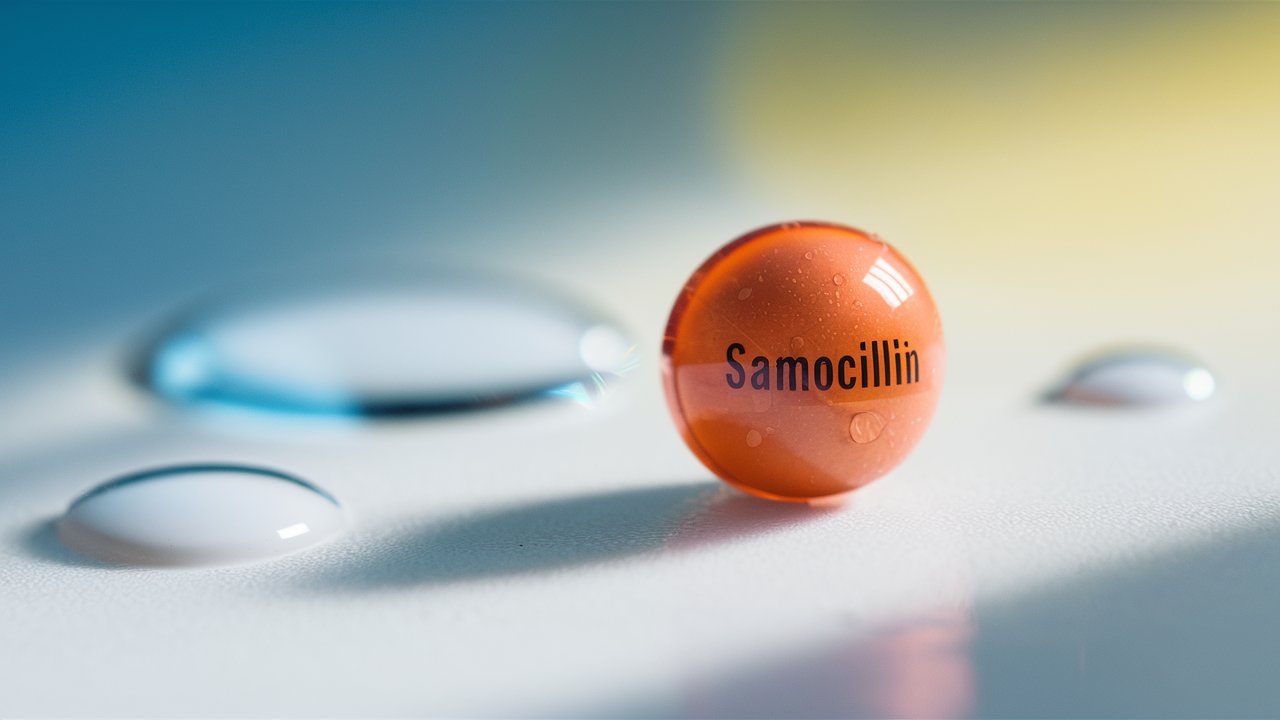After my recent bout with a stubborn respiratory infection, Samocillin proved to be a game-changer. The broad-spectrum antibiotic not only alleviated my symptoms quickly but also helped me recover faster than I anticipated.
Samocillin is a broad-spectrum antibiotic belonging to the penicillin family, used to treat various bacterial infections. Known for its effectiveness in combating both common and resistant strains, it works by disrupting bacterial cell wall synthesis. Its wide applicability and proven efficacy make it a staple in modern antibiotic therapy.
Additionally, we will cover its clinical applications, benefits, potential side effects, and ongoing research that highlights its continued relevance in treating diverse bacterial infections.
What Is Samocillin?
The Origin And Meaning Of Samocillin
The name Samocillin derives from the Latin word “samocillin,” meaning “little brush.” This intriguing nomenclature reflects the drug’s function in clearing out bacterial infections as effectively as a brush cleans a surface.
As a broad-spectrum antibiotic, Samocillin belongs to the penicillin family and is renowned for its effectiveness against a wide range of bacteria.
How Does Samocillin Work?
Samocillin operates by inhibiting the synthesis of bacterial cell walls. It achieves this by binding to specific proteins in the bacterial cell wall, leading to cell lysis and ultimately, the death of the bacteria. This mechanism makes Samocillin highly effective against various bacterial strains, including those that are resistant to other antibiotics.
Historical Development Of Samocillin:
The Early Days: Discovery And Synthesis
The journey of Samocillin began in the mid-20th century when scientists sought to improve upon penicillin’s already impressive antibacterial properties. Researchers aimed to create a derivative with enhanced effectiveness and broader spectrum activity. Through a series of chemical modifications, Samocillin was synthesized, marking a significant advancement in antibiotic therapy.
Evolution And Enhancements
Since its initial synthesis, Samocillin has undergone several modifications to improve its stability, efficacy, and resistance to bacterial enzymes that can neutralize penicillin-based drugs. These enhancements have contributed to its continued relevance in treating infections that other antibiotics may not address as effectively.
Clinical Significance And Applications:
Treating Common Infections
Samocillin is widely used to treat various bacterial infections, including respiratory tract infections, urinary tract infections, and skin infections. Its broad-spectrum nature means it can target multiple types of bacteria, making it a versatile tool in medical practice.
Role In Combating Antibiotic Resistance
One of the ongoing challenges in medicine is antibiotic resistance. Samocillin, due to its robust formulation and effectiveness, plays a crucial role in addressing resistant bacterial strains. By ensuring proper use and adherence to prescribed courses, healthcare professionals can help mitigate the spread of resistance.
Advantages Over Other Antibiotics
Compared to some antibiotics, Samocillin offers several advantages, including its broad spectrum of activity, relatively low incidence of side effects, and effectiveness against a wide range of bacterial pathogens. This makes it a preferred choice in many clinical scenarios.
Safety And Side Effects:
Common Side Effects
While Samocillin is generally well-tolerated, some patients may experience side effects such as gastrointestinal disturbances (nausea, vomiting, diarrhea), allergic reactions, or skin rashes. These side effects are usually mild and transient, but in rare cases, more severe reactions can occur.
Managing Allergic Reactions
Allergic reactions to Samocillin can range from mild to severe. Symptoms may include itching, swelling, and difficulty breathing. Patients with known allergies to penicillin or related antibiotics should inform their healthcare provider before starting Samocillin to avoid potential adverse reactions.
Drug Interactions
Samocillin can interact with other medications, potentially affecting its efficacy or increasing the risk of side effects. It’s important for patients to inform their healthcare providers about all medications they are taking, including over-the-counter drugs and supplements.
Current Trends And Research:
Advancements In Antibiotic Development
The field of antibiotic research is dynamic, with ongoing efforts to develop new drugs and improve existing ones. Researchers continue to study Samocillin’s effectiveness, resistance patterns, and potential new applications. These studies are crucial for staying ahead of emerging bacterial threats and optimizing treatment strategies.
Future Prospects
Future research may focus on enhancing Samocillin’s effectiveness against resistant strains and exploring its potential in treating novel bacterial infections. Innovations in drug delivery systems and formulation improvements could also contribute to its continued success in clinical settings.
Conclusion
Samocillin has proven to be an invaluable antibiotic in the fight against bacterial infections. Its origins, development, and ongoing relevance highlight its significance in modern medicine. By understanding its mechanisms, applications, and potential side effects, patients and healthcare providers can make informed decisions about its use.
In an era where antibiotic resistance is a growing concern, Samocillin’s role as a broad-spectrum antibiotic remains critical. Continued research and adherence to appropriate use guidelines will ensure that Samocillin continues to serve as a reliable tool in combating bacterial infections for years to come.
FAQs
What Is Samocillin Used For?
Samocillin is used to treat a variety of bacterial infections, including respiratory tract infections, urinary tract infections, and skin infections. It is a broad-spectrum antibiotic that targets a wide range of bacteria.
How Does Samocillin Work?
Samocillin works by inhibiting the synthesis of bacterial cell walls, leading to the destruction of bacteria. It binds to specific proteins in the bacterial cell wall, preventing the bacteria from maintaining their structural integrity.
Are There Any Common Side Effects Of Samocillin?
Common side effects of Samocillin may include gastrointestinal issues such as nausea, vomiting, and diarrhea. Allergic reactions and skin rashes are also possible but less common.
Can Samocillin Cause Allergic Reactions?
Yes, Samocillin can cause allergic reactions, which may range from mild symptoms like itching to more severe reactions such as difficulty breathing. Patients with a known allergy to penicillin should avoid using Samocillin.
How Should I Take Samocillin?
Samocillin should be taken exactly as prescribed by your healthcare provider. It is usually administered orally in the form of tablets or capsules. It’s important to complete the full course of treatment, even if symptoms improve before the medication is finished.
What Should I Do If I Miss A Dose Of Samocillin?
If you miss a dose of Samocillin, take it as soon as you remember. If it is almost time for your next dose, skip the missed dose and resume your regular dosing schedule. Do not double up on doses to make up for a missed one.
Can Samocillin Interact With Other Medications?
Yes, Samocillin can interact with other medications, which may affect its effectiveness or increase the risk of side effects. Inform your healthcare provider about all medications you are taking, including over-the-counter drugs and supplements.
Is Samocillin Safe For Pregnant Or Breastfeeding Women?
The safety of Samocillin during pregnancy and breastfeeding should be discussed with your healthcare provider. While it is generally considered safe, your provider will weigh the benefits and risks based on your specific situation.
What Should I Do If I Experience Severe Side Effects?
If you experience severe side effects or symptoms of an allergic reaction, such as difficulty breathing or severe rash, seek medical attention immediately. Contact your healthcare provider for guidance on managing any adverse effects.
How Can I Prevent Antibiotic Resistance When Using Samocillin?
To prevent antibiotic resistance, use Samocillin only as prescribed and complete the full course of treatment. Avoid using antibiotics for viral infections and do not share your medication with others. Adhering to these practices helps ensure the continued effectiveness of antibiotics.

